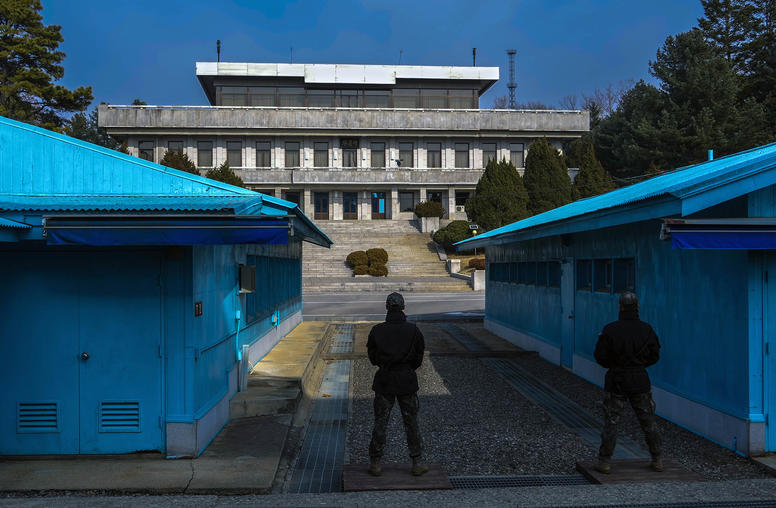Orphans of Conflict: Caring for the Internally Displaced
This report proposes five steps to improve the global response to internal displacement. If taken, these steps would build ownership of IDPs by host governments and foreign donors, implement rules and standards governing the response, reform the response of the United Nations and the United States, and create a permanent advocacy constituency for IDPs.

Summary
- The world's 25 million internally displaced persons (IDPs) are the orphans of conflict. Although a range of humanitarian relief and protection is available to the displaced if they cross international borders and thus become refugees, no safety net exists for displaced persons who remain in their own countries.
- Host governments are often unable or unwilling to attend to the food, water, shelter, medical, and protection needs of IDPs. Moreover, they may deny international relief agencies and nongovernmental organizations (NGOs) the opportunity to enter sensitive regions and may restrict external aid, perceiving it as interference in the country's internal affairs. This pattern continues despite growing international acceptance of the concept that sovereignty entails a responsibility either to protect citizens within national borders or to accept international intervention on their behalf.
- Within international organizations and donor-country governments, responsibility for IDPs often precipitates a turf battle when resources and the political will to respond are present, and a game of hot potato if they are not. As a result of such inaction, IDP camps usually become sites of lethargy and desperation, and potential breeding grounds for crime, trafficking in drugs and persons, and terrorism.
- Much has already been done to advance the notion of rights and responsibilities of governments for their citizens that has direct application to the IDP crisis. Yet more is needed to address serious gaps in the provision of food, health care, housing, and protection for IDPs, as well as measures to resolve the root causes of displacement.
This Special Report proposes five steps to improve the global response to IDPs. These steps, if taken, would build ownership of IDPs by host governments and foreign donors, implement rules and standards governing the response, and create a permanent advocacy constituency for IDPs.
- First, national governments, foreign donors, and NGOs should apply the concept of sovereignty as the "responsibility to protect" to cases of large-scale internal displacement.
- Second, governments, international organizations, and NGOs should do more to implement the "Guiding Principles on Internal Displacement," a nonbinding but comprehensive statement of the rights of IDPs and domestic and international responsibilities.
- Third, the United Nations should restructure its response to the IDP crisis either by designating the UN High Commissioner for Refugees as the lead UN agency for IDPs or by having the secretary-general assign a specific UN agency the lead for each new crisis of internal displacement that emerges.
- Fourth, the U.S. government should give meaning to the leadership of the U.S. Agency for International Development (USAID) on IDP assistance issues by earmarking resources for IDPs and providing a legislative mandate for this responsibility. In addition, it should designate a point person to raise the profile of IDP issues at the U.S. Department of State and National Security Council.
- Fifth, the American public should create a new mechanism—a "USA for IDPs"—to highlight IDP crises, build a constituency for action, and provide a means for private Americans to respond financially.
About the Report
The crisis of internally displaced persons (IDPs)—those who are driven from their homes by conflict, human rights abuses, natural disasters, and other causes, and who do not cross international borders—affects some 25 million people in 50 countries. From Sudan to Sri Lanka, from Colombia to Congo, from Angola to Algeria, IDPs suffer severe humanitarian hardships, lack basic human rights, and are subject to abuse, including forced conscription and sexual violence. In addition, the chaos and instability that accompanies internal displacement is an invitation to international crime, pandemic diseases, and trafficking in persons, drugs, and weapons. Host governments that are ultimately responsible for assisting, protecting, and returning IDPs to their homes are often unable or unwilling to do so.
This report proposes five steps to improve the global response to internal displacement. If taken, these steps would build ownership of IDPs by host governments and foreign donors, implement rules and standards governing the response, reform the response of the United Nations and the United States, and create a permanent advocacy constituency for IDPs.
Donald Steinberg is vice president for multilateral affairs at the International Crisis Group. He was a senior fellow in USIP's Jennings Randolph Program for International Peace during 2004–2005. He served for 29 years in positions in the State Department, the National Security Council, and Congress, including U.S. ambassador to Angola, NSC senior director for African affairs, and deputy assistant secretary of state for population, refugees, and migration. He has received more than a dozen awards for contributions to international peace, conflict resolution, women's empowerment, and public service.
The views expressed in this report do not necessarily reflect views of the United States Institute of Peace, which does not advocate specific policy positions.




